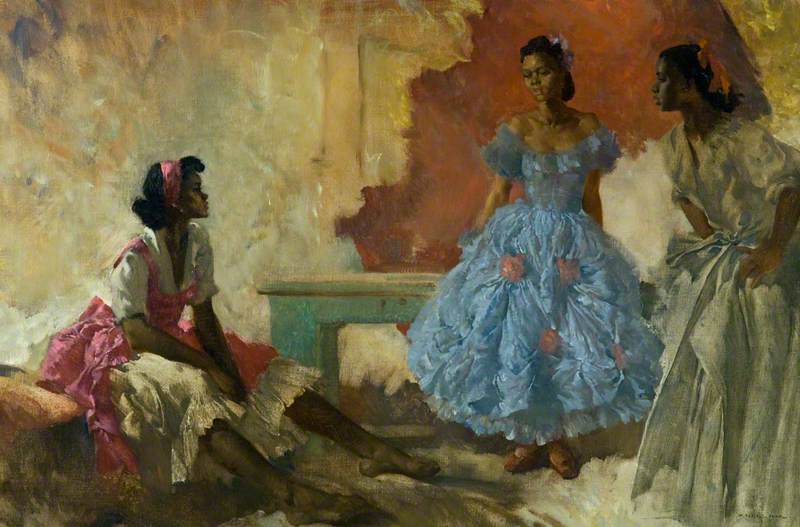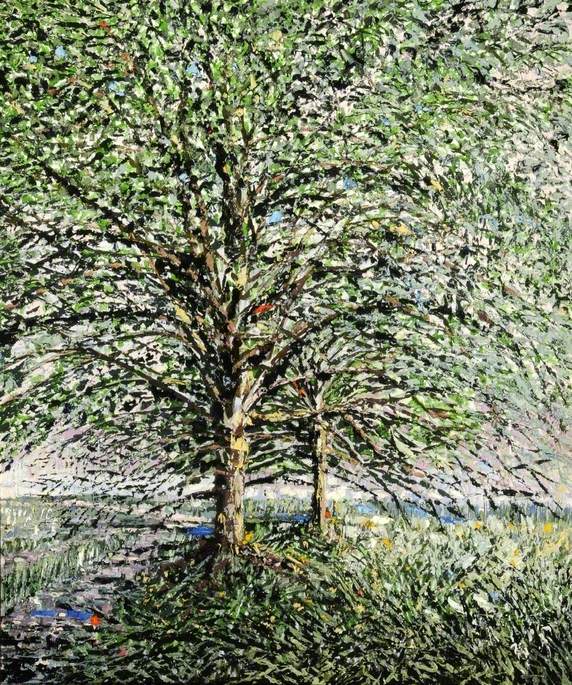
Dancers – Victoria, Ora and Serafina exhibited 1948
William Russell Flint (1880–1969)
Dundee Art Galleries and Museums Collection (Dundee City Council)
Text source: The Oxford Dictionary of Art and Artists (Oxford University Press)
1880–1969
British, Scottish

Dancers – Victoria, Ora and Serafina exhibited 1948
William Russell Flint (1880–1969)
Dundee Art Galleries and Museums Collection (Dundee City Council)
Text source: The Oxford Dictionary of Art and Artists (Oxford University Press)

Gerardine Mulcahy-Parker
William Russell Flint was born in Edinburgh, Scotland on 4 April 1880 and was the son of Francis Wighton Flint (1851-1902) a designer and watercolourist. He was apprenticed as a lithographic artist and designer with a firm of printers during which time he attended evening classes at the Royal Institution School of Art in Edinburgh.
In 1900 Flint moved to London and was employed as a medical illustrator. In 1903 he was appointed to the staff of the Illustrated London News. In the evenings he attended classes at Heatherley's School of Fine Art.
Flint exhibited regularly at the Royal Institute of Painters in Water Colours, Royal Academy and International Society of Sculptors, Painters & Gravers in London; and with the National Society of Painters, Sculptors & Printmakers and the Lake Artists Society. He was elected an Associate of the Royal Academy (ARA) in 1924, and a full member (RA) in 1933. Flint who was a elected a member of the Royal Institute of Oil Painters in 1910; the Art Workers' Guild. in 1911; an Associate of the Royal Society of Painter-Etchers and Engravers (ARE) in 1931 and a full member (RE) in 1933. In 1914 he was elected an Associate of the Royal Watercolour Society (ARWS) and a full member (RWS) in 1917. From 1936 to 1956 he was President of the RWS.
Flint was largely known for his work in watercolour and won fame for his gypsies, flamenco dancers and dreamy nude paintings. He also illustrated a number of books and produced colour prints the Medici Society and for the Golden Cockerel Press.
Flint was knighted for his services to art in 1947. In 1962 a major retrospective exhibition of his work was held at the Royal Academy in London. He died in London on 30 December 1969
Examples of his work are in the permanent collections of Museums Sheffield, Newport Art Gallery in Gwent, McLean Museum and Art Gallery in Greenock, Whitby Art Gallery and many other UK art galleries and museums.
Text source: Art History Research net (AHR net)